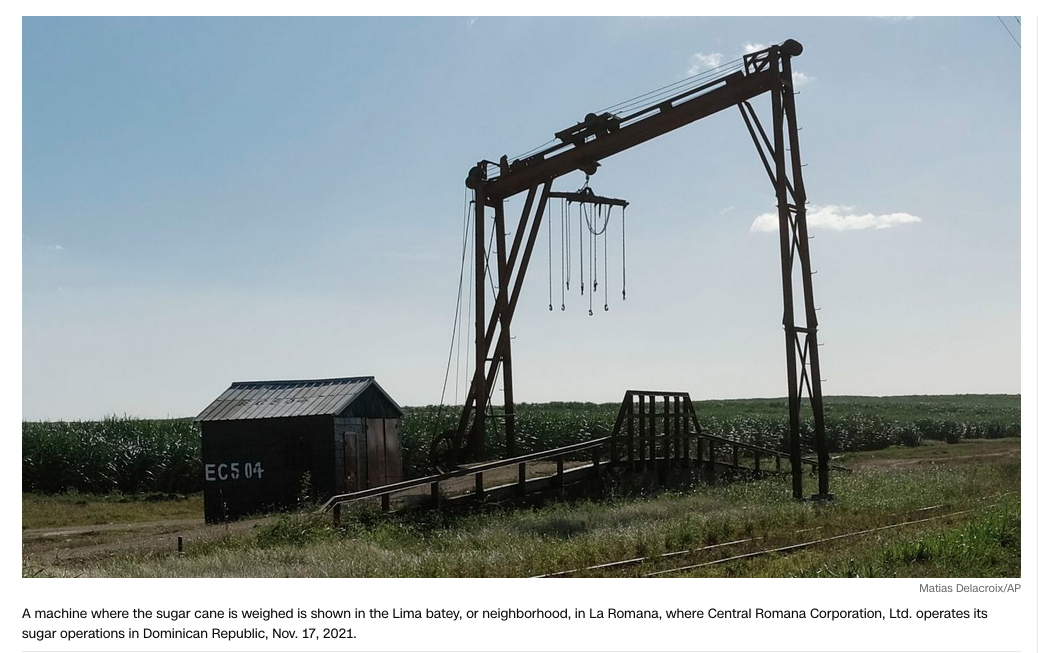
NY Times:
US authorities will block imports of sugar produced in the Dominican Republic by company Central Romana, on suspicion of forced labor at its facilities.
US Customs and Border Protection (CBP) will detain the company’s raw sugar and sugar-based products at all US ports of entry effective Wednesday, the agency said in a statement published that day, citing “inhumane practices.”
Central Romana is the largest producer of sugar in the Dominican Republic, acording to its website.
The decision to ban its sugar is “based on information that reasonably indicates the use of forced labor in its operations,” reads the CBP statement.
“CBP identified five of the International Labour Organization’s 11 indicators of forced labor during its investigation: abuse of vulnerability, isolation, withholding of wages, abusive working and living conditions, and excessive overtime,” it said.
Central Romana said the move was cause for “great concern” in a statement published on Twitter.
“The rationale behind this measure does not reflect the policies and practices of Central Romana,” it said, adding that the company has spent “millions” to improve living and working conditions, “guaranteeing living wages and increased benefits,” and offering educational and training programs.
The company, which started operating in 1912, also works in a number of different industries, including real estate; airport and port operations; and meat and dairy production, according to the company website.
US authorities have been investigating labor issues in the Dominican Republic’s sugar industry for a number of years.
“While the country’s Ministry of Labor and sugar companies have made important progress, concerns remain about dangerous working conditions, verification of pay and hours, unsuitable living conditions, workers’ precarious legal status and other potential labor rights abuses,” the US Department of Labor said in a statement published September 13.
The department also added sugarcane from the Dominican Republic to its List of Goods Produced by Child Labor or Forced Labor that month.
Wednesday’s order “demonstrates CBP’s commitment to protect human rights and international labor standards and to promote a fair and competitive global marketplace,” said CBP Acting Commissioner Troy Miller in the CBP release.
The Caribbean nation’s sugar industry has traditionally relied on workers from neighboring Haiti. In recent years the Dominican Republic has stepped up efforts to expel undocumented Haitian migrants amid rising xenophobia.
Reporting contributed by Stefano Pozzebon in Bogota.
